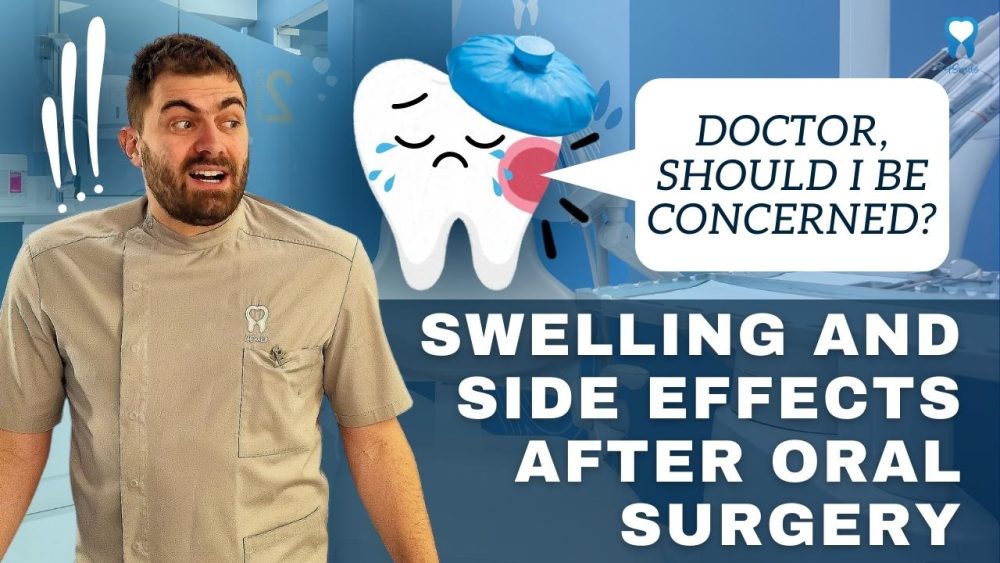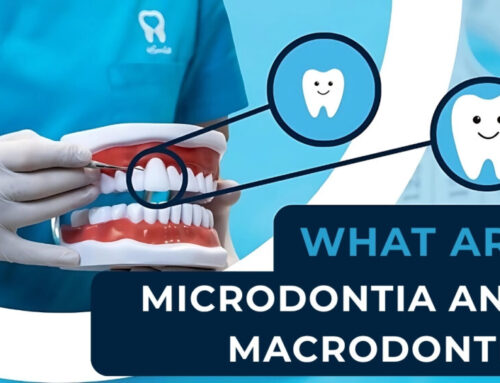Undergoing oral surgery can be a daunting experience, but it’s often necessary for improving oral health and addressing various dental issues.
After oral surgery, it’s common to experience swelling and other side effects as your body heals. While a certain level of discomfort is normal, it’s important to understand what falls within the normal range and what might indicate a more serious problem.
In this week’s blog from Dental Center 4Smile, you’ll learn all about typical swelling and side effects that occur after oral surgery, as well as signs that could raise concern.
Understanding Swelling:
Swelling is a common side effect of oral surgery, primarily caused by inflammation as your body initiates the healing process. It typically peaks within the first 48 to 72 hours after the surgery and gradually subsides afterward. The extent of swelling may vary depending on the complexity of the procedure but generally affects the area where the surgery was performed, such as the cheeks, jaw, or gums.
Common Side Effects After Oral Surgery:
- Swelling: As mentioned earlier, swelling is normal after oral surgery, with the most significant swelling often occurring on the second or third day after the surgery.
The swelling should gradually reduce over time, and applying ice packs to the affected area during the first 24 to 48 hours can help reduce swelling.
- Discomfort: It’s common to experience a certain level of discomfort or pain after oral surgery. Your dentist or oral surgeon may prescribe pain relief medication to alleviate the pain. Following their instructions for using the medication is crucial.
Also at Dental Center 4Smile, dentist Ivan Antolković will prescribe you an antibiotic course, which must be completed according to the instructions.
- Bleeding: Some bleeding can be expected immediately after the surgery. If bleeding doesn’t stop or becomes excessive, consult your dentist.
- Bruising: Bruising or a change in color around the surgical site is not uncommon. It is a result from the accumulation of blood beneath the skin, and it should gradually fade over time.
- Limited mouth opening: Depending on the type of surgery, you may have difficulty fully opening your mouth for a few days. This should improve as the healing progresses.
- Restricted diet: Your dentist may recommend a soft or liquid diet for a specific period after the surgery. It will allow the surgical site to heal without irritation.
Concerning Side Effects After Oral Surgery:
While swelling and side effects are generally part of the healing process, some signs may indicate a potential problem. If you experience any of the following, contact your dentist immediately:
- Severe or increasing pain that isn’t relieved by prescribed medications.
- Excessive bleeding that doesn’t stop with pressure or lasts longer than 24 hours.
- Fever, chills, or a general feeling of being ill, which could indicate an infection.
- Pus or discharge from the surgical site, as this can also indicate an infection.
- Numbness or tingling that persists beyond the expected recovery period.
- Difficulty breathing, swallowing, or speaking, which could be a sign of airway obstruction or other complications.
Advice from Dentist Ivan Antolković:
“Swelling and side effects are a normal part of the healing process after oral surgery. Understanding what’s typical and what might be concerning is crucial to ensure a smooth recovery. While discomfort, swelling, bruising, and limited mouth opening are expected, it’s important to recognize signs that could indicate a more serious problem. If you have any doubts, always consult your dentist for guidance and advice. With proper care and attention, you can comfortably recover and restore optimal oral health.”















